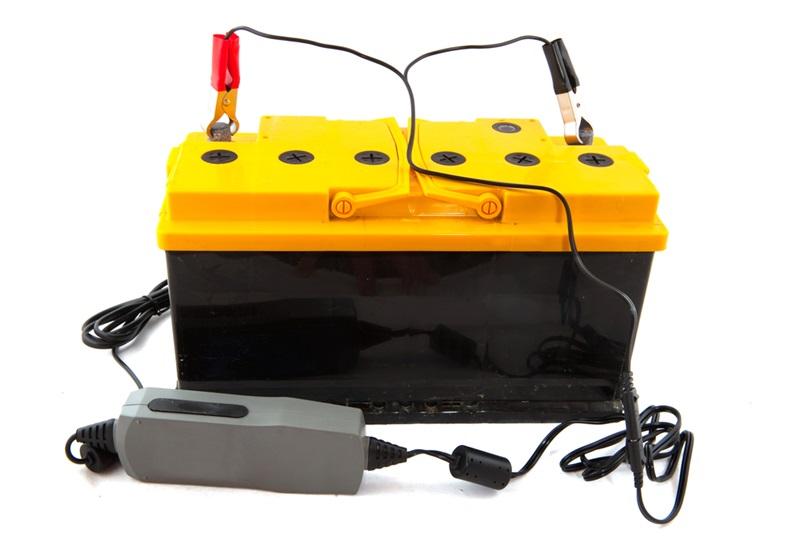Batteries for all models are the lifeblood of any vehicle, providing the essential power to start engines, operate electronics, and keep everything running smoothly. With a myriad of car models on the market, it's crucial to understand the diverse battery options available to ensure optimal performance and longevity for your ride. This guide delves into the world of car batteries for all models, exploring their types, features, and compatibility with different vehicle models.
Understanding Battery Types: Car batteries come in various types, each with its own set of characteristics and applications. The most common types include lead-acid, lithium-ion, and absorbed glass mat (AGM) batteries. Lead-acid batteries for all models are traditional and affordable, suitable for most standard vehicles. Lithium-ion batteries offer superior energy density and longevity, ideal for high-performance and electric vehicles. AGM batteries, known for their durability and resistance to vibration, are favored in luxury cars and heavy-duty applications.
Compatibility with Car Models: When choosing a battery for your car, compatibility is key. Different vehicle models have distinct power requirements and physical dimensions that must be considered. Manufacturers often provide specifications detailing the compatible battery sizes, capacities, and terminal configurations for specific car models. It's essential to consult these guidelines or seek professional advice to ensure the chosen batteries for all models fits seamlessly into your vehicle without compromising performance.
Factors to Consider: Several factors influence the selection of a suitable battery for your car model:
- Size and Fitment: Opt for a batteries for all models that matches the dimensions and terminal layout specified by the vehicle manufacturer to ensure proper installation and functionality.
- Cold Cranking Amps (CCA): CCA indicates a battery's ability to start the engine in cold temperatures. Choose a battery with sufficient CCA rating for reliable cold-weather performance, especially in regions with harsh winters.
- Reserve Capacity (RC): RC measures a battery's ability to power essential vehicle systems in case of alternator failure. Select a battery with a sufficient RC rating to support critical functions during emergencies.
- Maintenance Requirements: Consider whether you prefer maintenance-free or low-maintenance battery options based on your convenience and long-term upkeep preferences.
- Warranty Coverage: Look for batteries with generous warranty coverage, providing peace of mind against premature failures or defects.
Popular Battery Brands:
Several reputable brands specialize in manufacturing high-quality batteries tailored to diverse car models. Among the most renowned brands are:
- Optima: Known for its advanced AGM technology and superior performance, Optima batteries are favored by enthusiasts and off-road enthusiasts.
- Interstate: With a wide range of batteries for all models options catering to various vehicle types, Interstate batteries offer reliability and longevity backed by solid warranty coverage.
- Diehard: Trusted for its rugged construction and dependable starting power, Diehard batteries are synonymous with durability and performance, making them a popular choice among drivers.
- Exide: Renowned for its extensive lineup of lead-acid and AGM batteries for all models, Exide delivers robust performance and compatibility across different car models.
- AC Delco: As a trusted OEM supplier for many automotive manufacturers, AC Delco batteries boast quality construction and reliable performance, earning the trust of drivers worldwide.

Installation and Maintenance Tips:
Proper installation and maintenance are crucial for maximizing batteries for all models, life and performance. Follow these tips to ensure optimal battery health:
- Clean Battery Terminals: Regularly clean the batteries for all models terminals and cables to prevent corrosion buildup, ensuring a secure electrical connection.
- Check Electrolyte Levels: For lead-acid batteries for all models, monitor electrolyte levels and top up with distilled water as needed to maintain proper functionality.
- Secure Battery Hold-Down: Ensure the battery is securely fastened in place to prevent movement or vibration-induced damage during vehicle operation.
- Test Battery Health: Periodically test the battery's voltage and conductance using a multimeter or battery tester to assess its health and detect potential issues early.
- Charge as Needed: If the vehicle is not in regular use, consider using a battery maintainer or trickle charger to keep the batteries for all models charged and prevent sulfation.
Conclusion:
Choosing the right batteries for all models is essential for ensuring reliable performance and longevity on the road. By understanding the various batteries for all models, compatibility factors, and maintenance requirements, you can make an informed decision that meets your vehicle's power needs. Whether it's a compact sedan, a rugged SUV, or an electric hybrid, there's a battery solution tailored to power every ride.






0 Comments